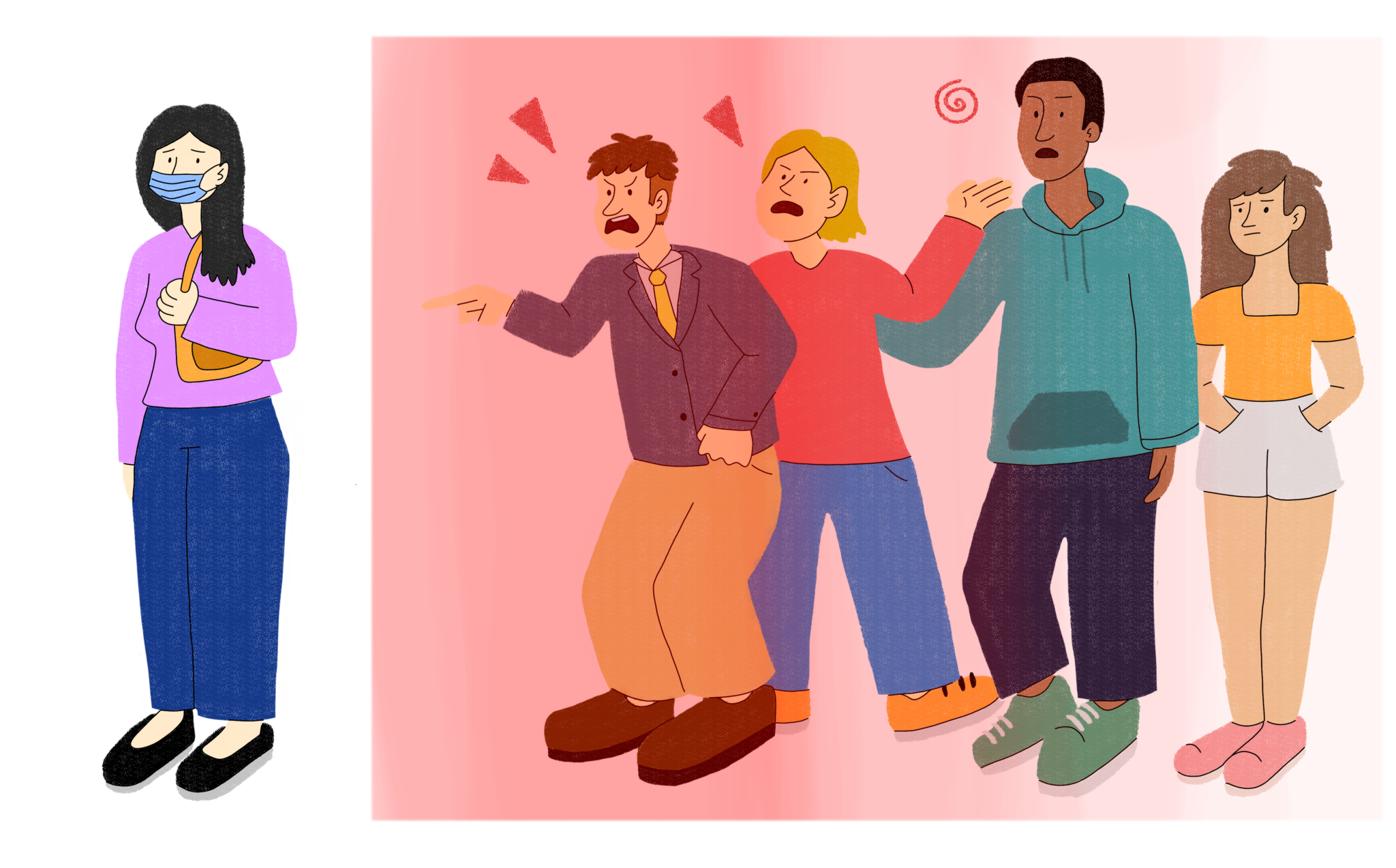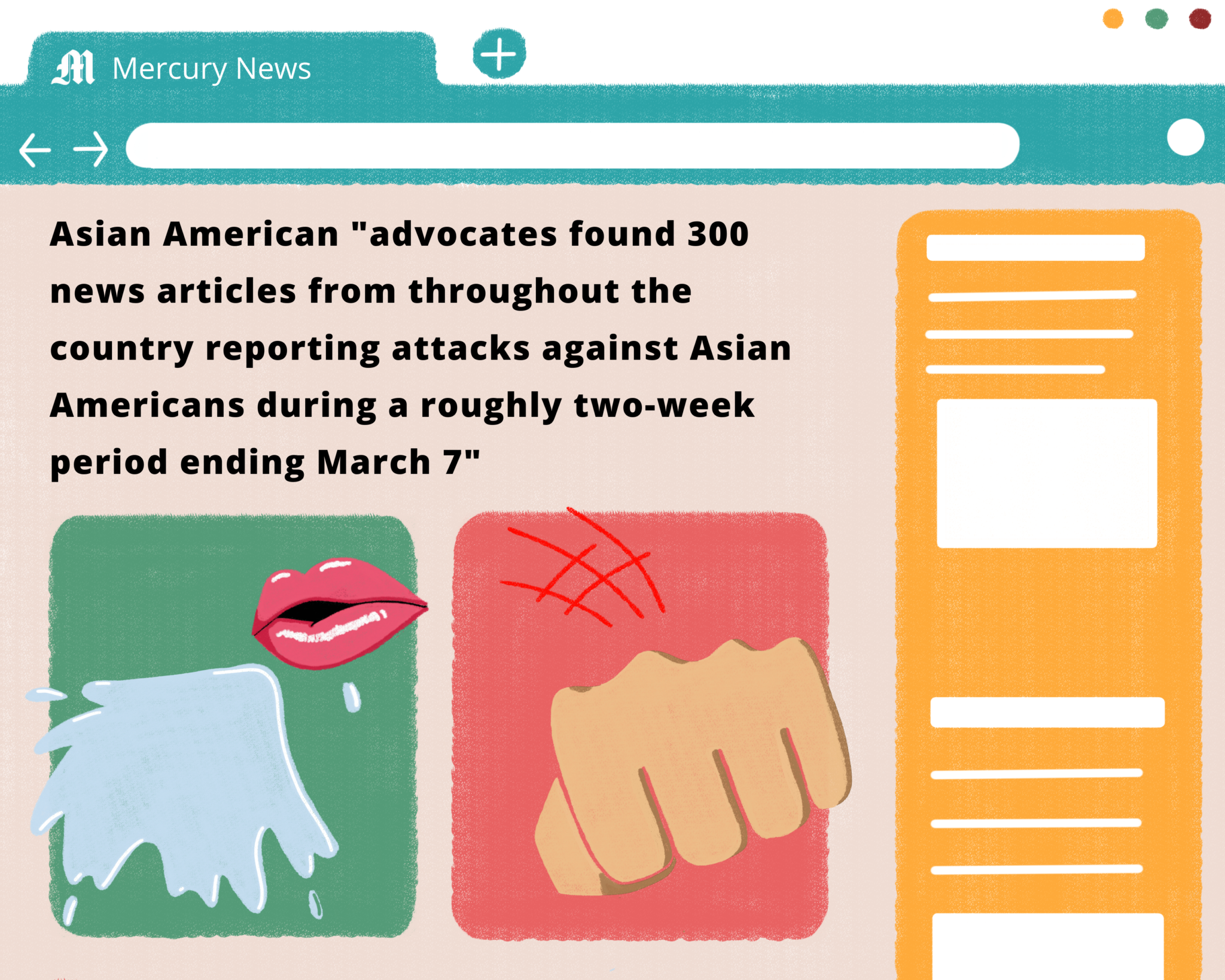
A few months ago, the novel coronavirus may have seemed distant and unreal, equal parts tragic and far removed from the Aragon community’s corner of the globe. Now, however, it is very much real and present.

In the three weeks that it has taken for the virus to reach the United States, it has warped society in more ways than one, with racism and xenophobia spreading alongside the pandemic. Asian-Americans across the world now face threats of racist remarks, microaggressions and even violence.
Perceptions of Asian-Americans are twisted by the simplest events. For senior Cassandra Chen, it was a common cough that subjected her to judgement.
“I had bronchitis [and] right after I performed on stage [for a dance competition], I had a cough attack,” Chen said. “These four people stared [and pointed] at me with disgust for quite some time.”
For others, the spread of misinformation harms livelihoods. Businesses across the world saw customers avoid Chinese restaurants even before the shelter in place was enforced. Senior Ann Yang’s family restaurant was one such business.
“Allowing for these racist sentiments to stand and fester sends the message that this racism is okay”
“We [saw] a deep decline in the amount of customers coming in,” Yang said. “It was definitely stressful on my parents.”
Discrimination against Asian Americans is rife in digital spaces, ranging from ignorant, offhand comments to outright hostility.
“Allowing for these racist sentiments to stand and fester sends the message that this racism is okay,” said senior Sabine Cismoski. “[This] is then used to justify escalating the xenophobic actions to outright attacks and violence.”
History has shown that, in times of crisis, fear and confusion contribute to racism and xenophobia. Following the terrorist attack on the World Trade Center on September 11, 2001, Muslim, Arab and Middle Eastern Americans faced unwarranted microaggressions and hate crimes. In the same way, Asian-Americans, especially Chinese Americans, have faced rising levels of discrimination.
“People are scared and don’t know who to blame,” Chen said. “This situation is no one’s fault and it’s not fair that Asians are being targeted and blamed when they shouldn’t be.”
Despite the coronavirus being a global pandemic, Asians have been disproportionately targeted as the primary scapegoat across the world. In San Francisco, an elderly Chinese man was assaulted for collecting cans. In Melbourne, parents at the Royal Children’s hospital refuse to let their children be treated by Asian doctors. In Seoul, a restaurant posted a sign reading ‘No Chinese allowed.’” Here in San Mateo’s Crystal Springs Shopping Center, graffiti reading “Filthy bug eating China go home” can be found.
Along with fear and ignorance, stereotypes have also perpetuated the discrimination Asian-Americans have faced.
“[There’s a] stereotype that Chinese people eat exotic foods,” said senior Kerri Chow. “People have been shaming Chinese people as a whole for ‘eating bats’… but the coronavirus is no excuse to bash an entire culture.”

Despite being united in the same struggle as cases have skyrocketed in Italy and the U.S., stereotypes fuel double standards that hinder others from empathizing with Asians despite being in the same predicament.
“We live in a pretty eurocentric world and throughout history, many people have been taught to subconsciously think of non-European cultures as the ‘foreigners,’” said Cismoski. “This deep-rooted racism and its impact continue to have an effect on today’s society.”
Racist sentiments go beyond the citizenry to include people in positions of power. President Donald Trump is under fire for referring to the novel coronavirus as the “China virus”, one of the many racist nicknames that have found their way into the common vernacular.
“We [must] speak up otherwise we are just being complacent in … racism and therefore become part of the issue”
“For many Americans, [when they] hear the President say that they think it’s okay to say those things,” said Yang. “[They] look up to the president [but] saying the same things … really hurts Asians.”
While others have attempted to cope with the uncertainties of the pandemic with offhand comments like President Trump’s, words carry weight regardless of good intentions.
“People who’ve said similar things like calling it the ‘Chinese flu’ might think it’s okay because the outbreak did start [in] China,” said Chow. “But I don’t think that they recognize that racism and xenophobia starts there.”
With the world grappling with fear and confusion, perhaps it is more important now than ever to unite and stand against injustice.
“We need the leaders of countries to step up and fight … racism but it also needs to happen in everyday life too,” said Cismoski. “We [should] all hold ourselves and each other accountable … we [must] speak up otherwise we are just being complacent in … racism and therefore become part of the issue.”
The world is in the midst of an unprecedented challenge, where fear may bring the worst in people if they let such forces rule them. All have power that can be used to lift others up or cut others down: it is ultimately that choice that determines whether the world emerges united or more divided than ever before.



